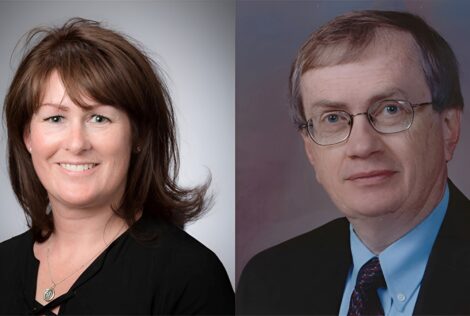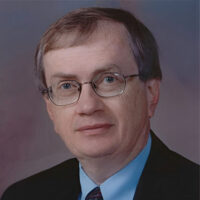
Expertise
-
Professor Emeritus
Chemical Engineering
Overview
Advanced Control and Optimization in the Process Industries
Competitive pressures require today’s process plants to be tightly integrated and to achieve consistently high yields, low energy consumption and excellent product quality. The overall objective of this research is the development of new real-time technology that enables plant personnel to satisfy these ever-increasing demands. Particular emphasis is placed on the design, optimization, control, and monitoring of the integrated plant, not on individual units.
Considerable opportunity exists to optimize operating variables in existing process plants, but the analysis is challenging. New analysis procedures address the realistic environment of dynamic plants, noisy data and models with errors. The research concentrates on model updating, model formulation, optimization, and results analysis that are designed to function as an integrated, feedback system.
Operations optimization exists in a hierarchical decision-making system, so that the research must also address the proper structure and communication between these levels. The higher scheduling level considers longer-term issues and provides an operating window and goals (economics) to the optimizer. The lower, multivariable control level enforces the proper operating policy as disturbances enter the plant.
I collaborate with several Faculty members and 18 industrial sponsors in the McMaster Advanced Control Consortium (MACC). MACC fosters industrially relevant research in process systems engineering and provides a community of graduate students who share knowledge and experiences. Further information about MACC is available at the website.
- B.S., State University of New York at Buffalo (1966)
- M.S., University of Dayton (1967)
- Ph.D., University of Massachusetts (1972)
Visiting Fellow for Warren Centre (1987): Selected to lead a project on Advanced Process Control at the University of Sydney. The one-year study involved the evaluation of commercial and technical issues in plant automation for Australian industry by a team of 40 academics and practitioners. The results of this study have been published as a book by the Instrument Society of America. The project is summarized at http://thewarrencentre.org.au/
NSERC Chair in Industrial Process Control at McMaster University
Teaching: President’s Award for Excellence in Course and Resource Design was granted in 2001
Kalev Pugi Award: (with John MacGregor) – From the Society of Chemical Industry of Canada for accomplishments in research management demonstrating creativity, determination experimental design and project management for the McMaster Advanced Control Consortium.
Education
We have been developing teaching approaches and resources for education that can be used by students at all universities. The major product is an undergraduate textbook on process control and a supporting WEB Site.
Marlin, T., Process Control, Designing Processes and Control Systems for Dynamic Performance 2nd Edition, McGraw Hill, New York, 2000 (ISBN 0-07-039363-1)
The following WEB site provides interactive learning resources for process control students. http://www.pc-education.mcmaster.ca
Selected Publications on Education
Hough, M., E. Wood, W. S. Yip, and T. Marlin, A Web Site To Support Active Student Learning In
Process Control, Amer. Assoc. Engr. Ed. Annual Conference, Session 3513, Montreal, June 2002.
Marlin, T. and D. R. Woods., Trouble Shooting for CAPE Undergraduate Education, ESCAPE 12,
The Hague, Netherlands, May 26-29, 2002
Marlin, T., Progressing from Real to Realistic Practical Examples in Undergraduate Control
Education, AIChE Annual Meet, Los Angeles, November 2000; Topical Conference on Chemical Engineering Education .
Marlin, T., The Software Laboratory, Comp and Chem. Engr., ESCAPE-6 supplement,
S1371-1376, 1996
Recently, I have taught the following undergraduate courses.
- Chemical Engineering 3P04 Process Control
- Chemical Engineering 4N04 Engineering Economics and Problem Solving
- Chemical Engineering 4G03 Optimization in Chemical Engineering
and the following graduate course, Chemical Engineering 764 Process Control Design.
- Yip, W. S. and T. Marlin, The Effect of Model Fidelity on Real-Time Operations Optimization, Comp. Chem. Engr., 28, 267-280 (2004)
- Yip, W.S., and T. Marlin, Designing Plant Experiments for Real-Time Optimization Systems, Control Engineering Practice, 11, 8, 837-845 (2003).
- Kassidas, A., Patry, J. and T. Marlin, Integrating Process and Controller Models for the Design of Self-Optimizing Control, Comp. Chem. Eng.,24, 2589-2602 (2000)
- Miletic, I., and T. Marlin, On-Line Statistical Results Analysis In Real-Time Operations Optimization, Ind. Eng. Chem, 37,3670-3884 (1998)
- Forbes, F., and T. Marlin, Design Cost: A Systematic Approach to Technology Selection for Model-Based Real-Time Optimization Systems, Comp. Chem. Engr., 20, 717-734 (1996)
- Marlin, T. and A.N. Hrymak, “Real-time Operations Optimization of Continuous Processes”, Chemical Process Control-V Conference, Tahoe City, Nevada, Jan. 7-12, 1996.

